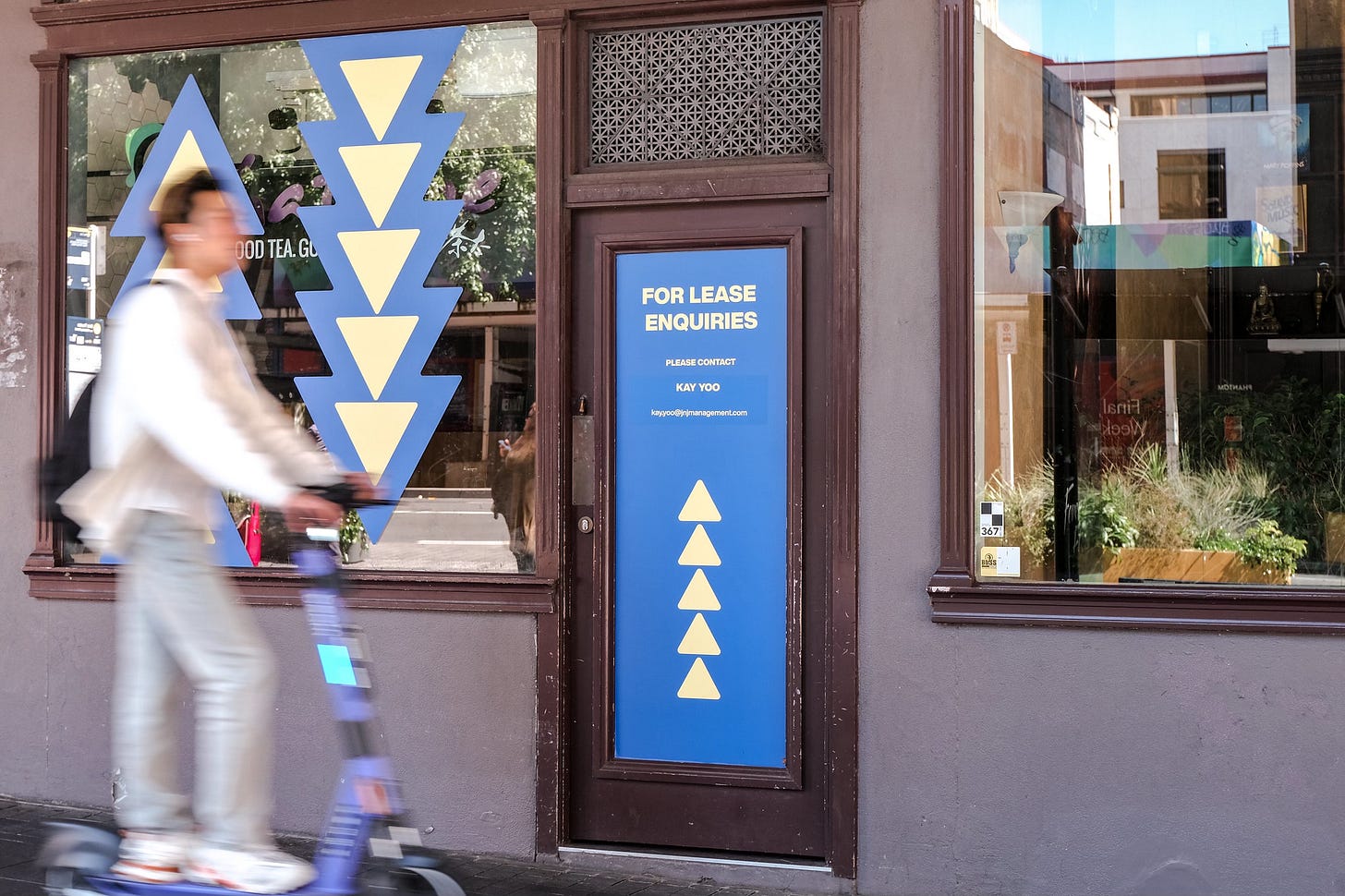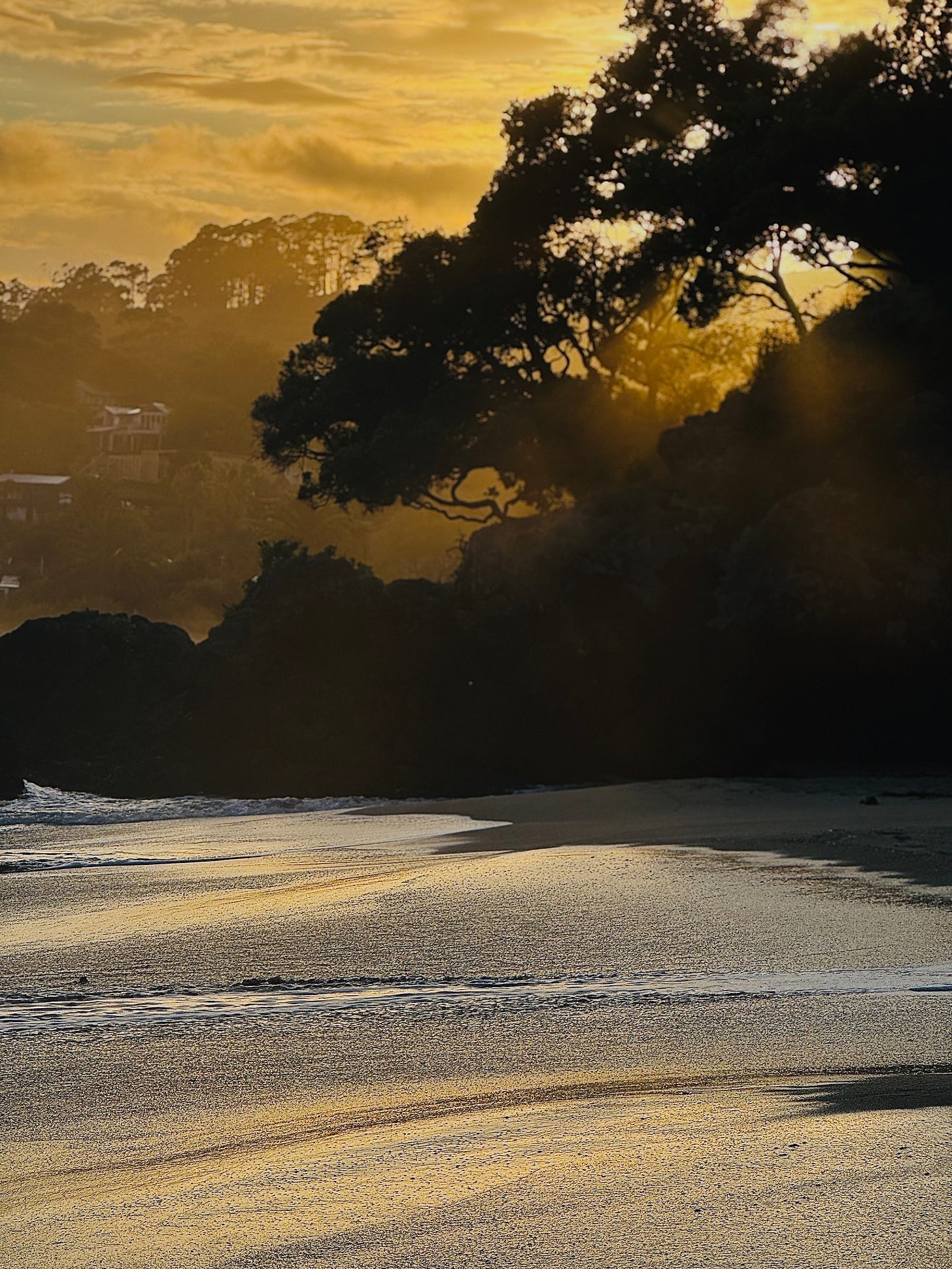
Long stories short, the top six things in Aotearoa’s political economy around housing, climate and poverty on Wednesday, February 12 are:
Business frustration is growing about a lack of economic growth, with some arguing certainty and confidence is needed on Government-funded anchor projects such as hospitals, roads and railways as a priority, rather than deficit and public debt reduction;
The last National-led Government borrowed to kick-start an economy out of a deep recession, including the successful green-lighting of debt-funded UFB, RONS and CRL projects;
Instead, the Government is looking to unleash a fresh wave of foreign investment in residential property, pushing for Winston Peters to relent on his foreign buyers ban, although he is only talking of allowing in big investors in $50 million-plus projects;
The real estate sector had built up their hopes the relaxation of the foreign buyers ban would be relaxed in the loosening of the Active Investor Plus settings on Sunday, but that hasn’t happened and Economic Growth Minister Nicola Willis and Immigration Minister Erica Stanford are only talking about the relaxation of the buyers ban as being a ‘work in progress’;
The Salvation Army published its 2025 State of the Nation report this morning, finding more than 400,000 people needed welfare support in December 2024, the highest number since the 1990s, while food insecurity among families with children had also risen sharply, with half of all Pacific children reported as going without food often or sometimes; and,
Personal relations between PM Christopher Luxon and soon-to-be Deputy PM David Seymour are said to be increasingly frosty, as indicated by Monday’s testy exchange in public between the two over Seymour’s letter to Police in support of Philip Polkinghorne, with Richard Harman reporting yesterday via Politik-$$$ that National was open to the idea of Epsom being abolished as an electorate in an upcoming redrawing of electoral boundaries.
(There is more detail, analysis and links to documents below the paywall fold and in the podcast above for paying subscribers. If we get over 100 likes from paying subscribers we’ll open it up for public reading, listening and sharing.)
That time National borrowed to drag NZ Inc out of recession
Businesses frustrated by a lack of economic growth are increasingly pointing to the suspensions, cancellations or uncertainty around Government-funded anchor projects such as hospitals that have often been the catalysts for ongoing private investment in the past;
The stalling of a decision about Nelson’s new Hospital was cited last night by Nelson Tasman Chamber of Commerce CEO Ali Boswijk as one reason businesses were uncertain about their own investments.
“When we get those big central Government investments in what are essentially regional economic development projects, that become uncertain, that creates uncertainty because nobody is willing to crew up and staff up and train for a project that might not happen.” Nelson Tasman Chamber of Commerce CEO Ali Boswijk on the stalled Nelson hospital decision, via 1News.
Indicative of the uncertainty in the wake of a year in which the new Government froze funding and decisions for state-funded housing, hospital, school, rail, cycling and local roading projects, a 1News-Verian poll last night found 50% of voters were not confident Finance and Economic Growth Minister Nicola Willis would deliver good economic growth, while just 34% were confident, including just 67% of National party supporters.
Previous examples of recession-ending and confidence-building triggers for wider private investment included the Key-English National Government’s announcements green-lighting the $1.5 billion Ultra Fast Broadband (UFB) network in September 20091, the debt-funded Roads of National Significance (RONS) in March 20092 and the Auckland City Rail Link (CRL) in January 2016.3
All of those projects were debt-funded, but the current National-led Government froze investment decisions and scaled back future capital spending plans in Budget 2024 because it argued public debt was too high.
It’s not (See chart of the day below).
Is the foreign buyer ban about to be eased in some way?
Willis and Immigration Minister Erica Stanford have started talking up the prospect of a reversal of NZ First-inspired-and-enforced ban on foreigners buying existing homes and residential land as a way to kick-start a stalled housing market, with Willis telling Bloomberg Television4 in an interview yesterday:
“Those are issues that we are discussing as a government. It may be that there are changes on that in the future, but we’ve not made that decision at this point.” Nicola Willis via Bloomberg TV-gift interview yesterday.
NZ First Leader Winston Peters also started used the ‘work in progress’ phrase, saying in an interview with NewstalkZB’s Mike Hosking5 last week:
“If someone has come to this country like they do to other countries and brings $50m to invest in a huge industry and to ensure that we’ve got employment where there’s no employment now, potential exports where there are no exports in this area now – then we will look at it certainly and that’s always been our view.
“Because that means you’ve got a serious investor committed to the New Zealand economy and [it’s] not just a bolthole in case they want to come here one day.”
We are going to have to construct an economy, which answers the question why invest in New Zealand, and that has to be detailed and specific. And we are not selling ourselves out if you are investing in New Zealand and you are going to have a massive part in building our economy if homeownership, while you do that, is part of it. That rule doesn’t have to be automatic no, but let’s see the details first.
“I know that there are people with interest and the money to seriously start yesterday. We have to frame our country’s policies wisely like Ireland, like Croatia doing like a rocket now, like Singapore did and make some sense for New Zealand people. We’ve got the assets, we’ve got the people, we just haven’t got the structural framework.” NZ First Leader Winston Peters talking to Hosking via OneRoof.
There is certainly pressure building from the real estate industry for the ban to be lifted, along the lines of National’s election policy of allowing sales of homes worth more than $2 million.
Expectations had been raised that the Active Investor Plus changes announced on Sunday would include some sort of relaxation of the ban, as detailed via OneRoof on Friday.
New Zealand Sotheby’s International Realty managing director Mark Harris told OneRoof in January: “If you are a foreigner investing $15m into the Active Investor Plus program to obtain a NZ visa, an investment in a residential home could contribute towards qualifying.”
Harris, who wrote an open letter to the Government last year calling for changes to the foreign buyer ban, did not think there would be a price threshold for foreign purchases if they were incorporated into the Active Investor Program.
“The economy needs the investment and if [the changes] encourage them to invest in New Zealand companies and infrastructure, and to employ people, then that is a positive,” he said.
Bayleys agent John Greenwood told OneRoof last month he had noticed more Overseas Investment Office applications – particularly investment assets – being approved under the current Government.
“We are now quite confident that a strong application with all the right criteria in the plus $10m bracket will normally be processed,” he said.
“If somebody is wanting to invest $10m in a residential house in New Zealand, I would recommend that they actually apply because the Government is wanting offshore money – they are just not prepared at the moment to say that’s the case.
“Because that is not out there, we are only getting people looking who have some form of association with New Zealand – either through family, business or what have you.”
Barfoot & Thompson prestige agent Paul Neshausen told OneRoof: “I think just opening the doors for foreign investment in real estate for anything over $5m would be the catalyst that we need to get our economy going.” OneRoof
The lack of changes to the ban in the announcements on Sunday were disconcerting to some in the audience, as RNZ’s Anneke Smith reported yesterday:
Immigration Lawyer Nick Mason said the 2018 ban on foreign home ownership would still prevent prospective investors from taking up the revamped Active Investor Plus scheme in April.
"Let's say we all have $15 million and I choose to invest that in New Zealand and I can get permanent residency. That's great, I can stay in New Zealand as long as I like but I can't own my own house until I've spent at least six months of a 12-month period there.
"People with that sort of capital, they don't necessarily spend six months anywhere and so I think that might be a considerable barrier for many investors."
Mason said repealing the foreign buyer ban for homes worth more than $2 million, as proposed by National on the 2023 election campaign, was "a no brainer".
"If we want these people to come establish a life here, which is the end goal, we need to let them buy a house and buy a house reasonably quickly because these people have options and I expect, given current geopolitical state, we're going to see a lot of interest out of the US and those people are going to want to make permanent shifts and not necessarily be in temporary housing while they do it." Nick Mason via RNZ
Chart of the day: there is no fiscal crisis
Further reading
Politics news: Ex-public servants still searching for work after last year's public sector cutsRNZ
Politics analysis: 'They all got sacked' - PM scores own goal at Question Time RNZ’s Jo Moir
Climate deep-dive: 'World leading' climate disclosure rules likely to be weakened RNZ’s Eloise Gibson
Health deep-dive: Palliative care on the rocks RNZ-Newsroom’s The Detail
Housing news: Government taking too long to fulfill social home pledge - provider RNZ’sLauren Crimp
Transport news: Auckland Transport delays charges for overnight street parking until March 2026 RNZ
Infrastructure news: Water Bill makes the government 'the evil penguin' - Hamilton councillorRNZ’s Natalie Akoorie
Infrastructure news: Gravel road debate: Council to further delay decision RNZ
Cartoon of the day
Timeline-cleansing nature pic of the day
Kā kite ano
Bernard
Beehive announcement by then-Communications Minister Steven Joyce in September 2009 of rollout details of UFB project.
Beehive announcement by then-Transport Minister Steven Joyce in March 2009 of details of first Roads of National Significance (RONS) programme.












Share this post